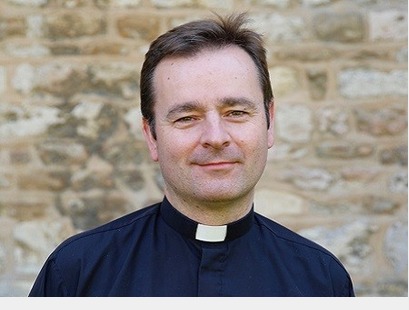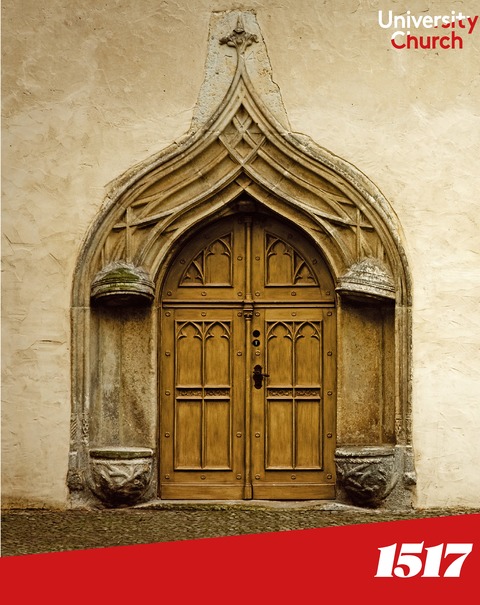| View this email online if it doesn't display correctly |
| |
|
|  |
Recent coverage of the controversy surrounding the inclusion of the
Christian Union at the Freshers’ Fair at Balliol College has sparked
some debate about religion and belief on University campuses. The
questions generated by this debate touch on some
important issues regarding equality and diversity, freedom of speech and
the limits of toleration, as well as the character of secularism. It
has become a truism that modern British society is more ‘secular’ now
than at any previous age. Indeed, Neil Macgregor,
introducing a recent radio series Living with the Gods, has
commented that Britain ‘is a very unusual society… We are trying to live
without an agreed narrative of our communal place in the cosmos and in
time’. And yet, the word ’secular’ demands a little
more interrogation and questioning. If we look at the variety of
political settlements, expressed in constitutional terms, in different
nations across the world, we discover that there are very different
forms of secularism - from the strict separation of church
and state in the United States to the pluralism characteristic of the
Constitution of India. And yet, as recent debates about the concept of laïcité in
France have shown, often these settlements are contested. They continue
to generate debate and sometimes
disagreement. Does the ‘secular’ create a space from which religion is
to be excluded? Or a ‘mutual space' where difference and diversity is to
be embraced?
In spite of the initial claim that the Christian Union may be
associated with ‘homophobia and neo-colonialism’, it is intriguing to
note that recent empirical research demonstrates that students who
identify themselves as ‘Christian’ are much more liberal
and open than the official teachings of the churches they attend (or,
for that matter, the societies to which they belong would suggest). I
suspect that one of the reasons for this gap is that, at University,
students discover an environment where different
ideas and perspectives are subjected to scrutiny and debate. The
experience of difference and diversity generates new questions and new
perspectives. As a graduate of Balliol myself, I can only offer a plea
that the humane and liberal values of generosity and
tolerance, which have characterised that institution for generations,
should continue to provide a space for intelligent and courteous
discussion. It is reassuring that the JCR has committed itself to
precisely that as students have considered the media response
in recent weeks. Part of my understanding of a University is that it
should be a place where contested forms of discourse interact with each
other. Universities are supposed to be ‘public spaces’. Where voices are
silenced or suppressed, something of the character
of a ‘University education’ is lost. While some discussion and debate
may be uncomfortable and challenging, I believe that in the future an
important part of the role of the University Church will be to stimulate
reflection on the ‘secularity’ of a modern University.
Just ten years ago, Charles Taylor published A Secular Age. He
suggested that 'our age is very far from settling into a comfortable
unbelief’. The world does not always fit neat and tidily into the
narratives of secularisation which have been provided.
He was particularly fascinated by the resurgence in religious belief in
post-Soviet Russia. Taylor suggested that ‘in the secular “wasteland”…
young people will begin again to explore beyond the boundaries.’ He
spoke of 'a new age of religious searching, whose
outcome no one can foresee’. Whatever shape that may take, my hope is
that St Mary’s will continue to be a place for open and critical
inquiry, a place where those who are searching are welcome to explore
the riches of the Christian tradition and to enter more
deeply into the mystery of God.
Revd Dr William Lamb
Vicar
|
| | The Week Ahead:
—This Sunday
Sunday 22nd October: The Nineteenth Sunday after Trinity
10.30 Choral Eucharist
Preacher: The Revd Rachel Weir
18.00 Choral Evensong at Lincoln College Chapel
Preacher: The Revd Dr Jim Walters
This Week
Monday
9.00 Morning Prayer, Chancel
12.15 Eucharist, Chancel
18.15 Choral Evensong, New College
Tuesday
9.00 Morning Prayer, Chancel
12.15 Eucharist, Chancel
18.00 Book Club, Jam Factory
22.00 Sung Compline, Hertford College
Wednesday: Crispin and Crispinian, c. 287
9.00 Morning Prayer, Chancel
12.15 Eucharist, Chancel
17.30 Poetry Workshop, Old Library
18.30 Taizé, Service Mansfield College
19.30 1517 (Law: Prof Sir John Baker), Old Library
Thursday: King Alfred, 899
9.00 Morning Prayer, Chancel
12.15 Eucharist, followed by Bible Study, Chancel
18.15 Choral Evensong, Merton College
Friday
9.00 Morning Prayer, Chancel
12.15 Eucharist, Chancel
17.00 Evening Prayer, Brasenose College
Saturday: Simon and Jude, Apostles
18.00 Choral Evensong, Magdalen College
Next Sunday
Sunday 29th October: The Last Sunday after Trinity
10.30 Choral Eucharist with Holy Baptism
Preacher: The Ven Dr Joanne Grenfell
12.00 Michaelmas Parish Lunch in the Old Library
17.30 Choral Evensong at Lady Margaret Hall Chapel
Ramsden Sermon: The Dean of Chelmsford
|
| | Michaelmas Termcard
You can view our Michaelmas Termcard now on our website and at this link: http://www.universitychurch.ox.ac.uk/wp-content/uploads/2017/09/Michaelmas_2017.pdf
The termcard contains lots of information about our programme over the next few month and includes our Advent and Christmas services. |
| | A Time to think: Bible Study
The Eucharist is celebrated daily in the Chancel (Monday-Friday) at 12.15pm. On Thursdays this term, immediately after the Eucharist, there will be a Bible Study in the Vestry (from 12.45-1.30pm). We will be exploring St Paul’s letters to the Corinthians. Please bring your lunch (e.g. sandwiches) with you. Hot drinks will be provided.
|
|
|
| |  |
1517
A five-part series of talks on works – cultural, legal, intellectual – of the year 1517, exploring the world in which the Reformation took shape.
Wednesdays 7.30-8.30pm in the Old Library (above the Vaults and Garden Café)
3rd Week (25th October)
Law: Sanctuary & Benefit of Clergy
1517 was a year associated with disorder, represented famously by the Evil May Day riots in London. A more widespread problem underlying the system of criminal justice was around the same time coming to a head. Murders and felons notoriously enjoyed two means of escape from the ordinary course of justice: benefit of clergy; and sanctuary, which gave protection to anyone able to place themselves within a church.
Sir John Baker QC, FBA, is Emeritus Downing Professor of the Laws of England in the University of Cambridge, and an Honorary Fellow of St Catharine’s College. He is also an Honorary Fellow of UCL. Called to the Bar in 1966, he is an Honorary Bencher of the Inner Temple and of Gray’s Inn. He was Literary Director of the Selden Society 1980-2011, and is currently its President.
|
| | Book Club
We are starting a book club on Tuesday evenings at 6.00pm. We will be meeting at the Jam Factory (Hollybush Row, OX1 1HU) and discussing Stay With Me by Ayobami Adebayo (Canongate, 2017). To find out more, please contact esther.brazil@universitychurch.ox.ac.uk.
|
| | Poetry Corner
Seint Fretheswyde, that holy mayde, was of Englonde;
Atte Oxenford heo was ybore, as ich understonde.
Hir fader hete Kyng Dydan, and Sefreth hete the quene -
This were hire eldren, that hure gotten hem bytwene.
Fretheswyd, hure yonge doughter, to lettre hii setten in youthe;
So wel heo spedde in six monnthes that heo hure Sauter couthe.
Swythe wel heo was byloved, of hey and of lowe;
Alle hii hadde joie of hure that couthen hure knowe.
Of the hard here was hure nexte wede.
The meste mete that heo ete was worten and barly brede,
And the cold welle water - that was hure drynke.
Now wold a knyghtes doughter grete hoker of suche sondes thynke!
from the South English Legendary (14th century)
19th October is the Feast of St Frideswide, patron saint of Oxford and, from 1440, the saint of the University. Above is reproduced the opening to a Middle English account of her life (in rhyme, of course). Here it recounts her earliest days and the meagre diet of them – and how a knight’s daughter would scorn such a life. Dr Eleanor Parker, on her blog ‘A Clerk of Oxford’, reproduces the poem in its entirety – along with a modern translation complete with peculiar idioms (‘as healthy as a fish’ being particularly of note). The poem might not have survived for its artistic merit, but it serves as an interesting lens through which we can view the Frideswide narrative. In this version Frideswide does not, however, hide among swine.
|
| | |